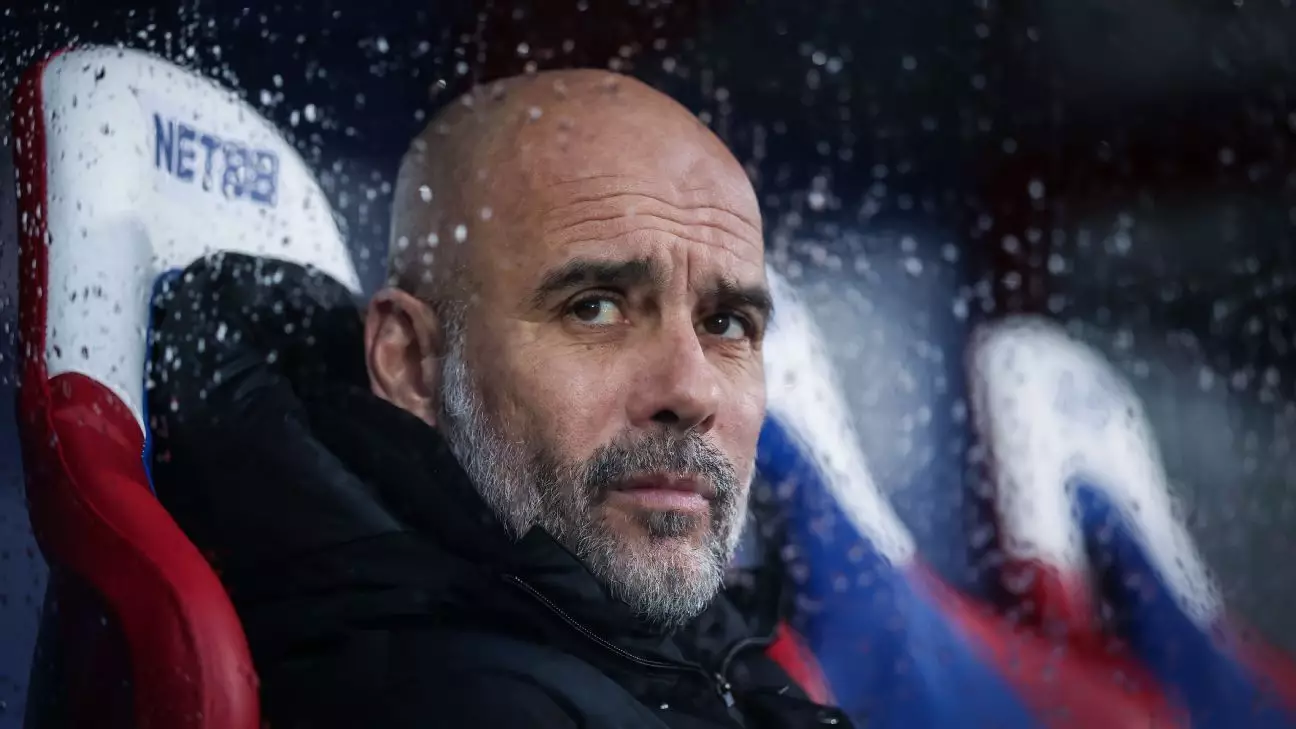Pep Guardiola, the esteemed manager of Manchester City, has recently reaffirmed his loyalty to the club, indicating that he has no intention of taking on another club project when his contract expires in 2027. Instead, Guardiola is exploring the possibility of managing a national team after his time at City. This statement reflects a broader narrative about the evolution of his career, suggesting a shift from club management to international representation.
Guardiola’s tenure at Manchester City has been nothing short of exceptional, with an impressive haul of trophies that includes six Premier League titles and the coveted Champions League trophy. His strategic approach to the game, blended with an extraordinary ability to develop players, has solidified City as one of the top clubs in Europe. Although Guardiola is staying put for the next few years, he is already contemplating life beyond Manchester, hinting that his approach to the game may evolve towards a less strenuous role.
The Challenges of Club Management
During an interview, Guardiola expressed candidly about the exhaustion associated with club management, stating, “I wouldn’t have the energy” to start fresh at another club. This admission speaks volumes about the relentless pressure and commitment required in the fast-paced world of club football. The manager elaborated on the challenges and processes involved in training teams, revealing that the thought of replicating his current role elsewhere fills him with a sense of apprehension.
The rigors of club management are intense and often taxing, and Guardiola’s introspective view sheds light on why successful managers may evolve their careers. The demands of constantly preparing for a new season, dissecting the competition, and molding a team are substantial, drawing on both mental and physical resilience. Guardiola’s focus on the future indicates a pragmatic approach; rather than dispersing his energy across multiple clubs, he appears to be seeking a more balanced role in international management.
While Guardiola is reluctant to delve into long-term ambitions, the notion of transitioning to managing a national team presents a compelling avenue. International management offers a different dynamic, focusing on a less grueling schedule while allowing for deep engagement with a group of players over a shorter period. With such a transformative shift, Guardiola might find renewed passion and focus in an international role, one that emphasizes strategy and preparation rather than the constant pressures of club football.
Additionally, he humorously mentioned his desire to take a break from football altogether, expressing a wish to “play golf” when his time at Manchester City concludes. This sentiment indicates a need for personal rejuvenation, suggesting he may seek a sabbatical from the game he has passionately committed his life to. The prospect of stepping away from coaching, even temporarily, may be an appealing option for the decorated coach, allowing him to explore other interests beyond the beautiful game.
As one of football’s all-time greats, Guardiola’s legacy is firmly established. With an impressive tally of 32 major trophies throughout his career, including three Champions League titles and domestic championships across Spain, Germany, and England, he has already etched his name in history. While the future may hold varied paths, his contributions to the sport will undeniably endure, whether through his potential international endeavors or through a much-needed respite from the demands of coaching.

Leave a Reply